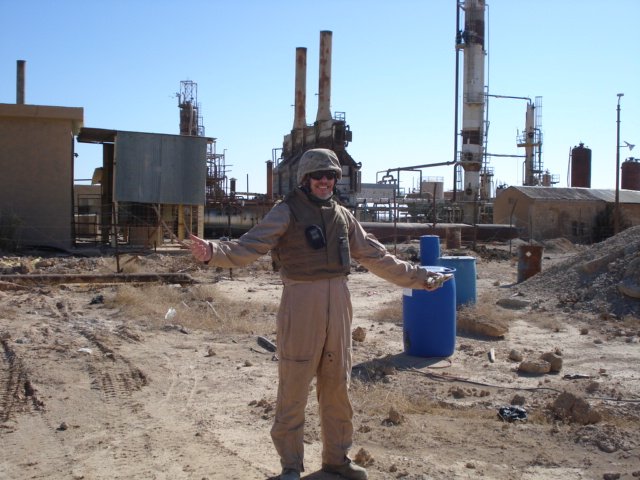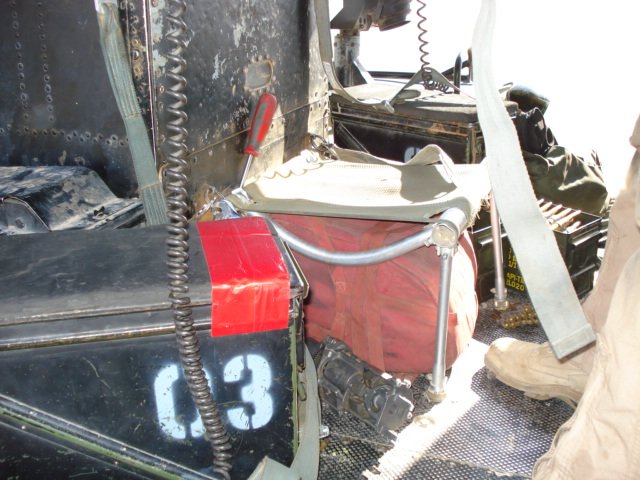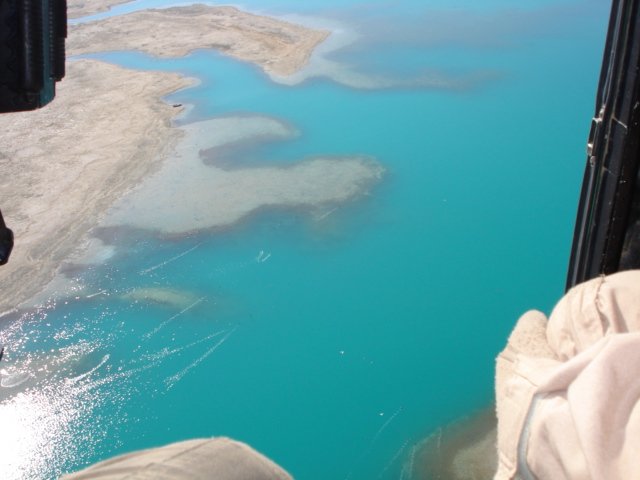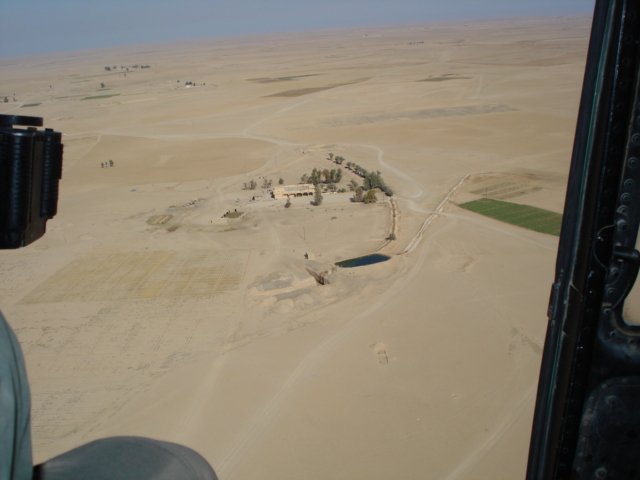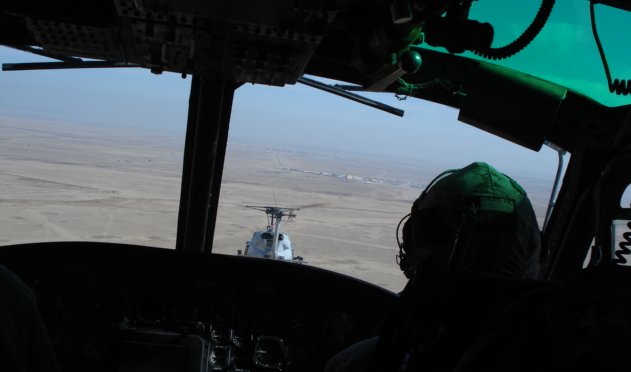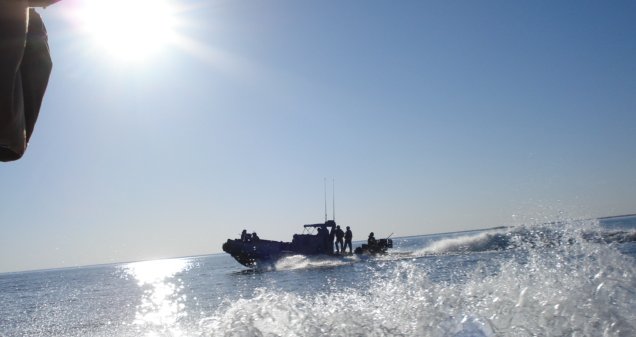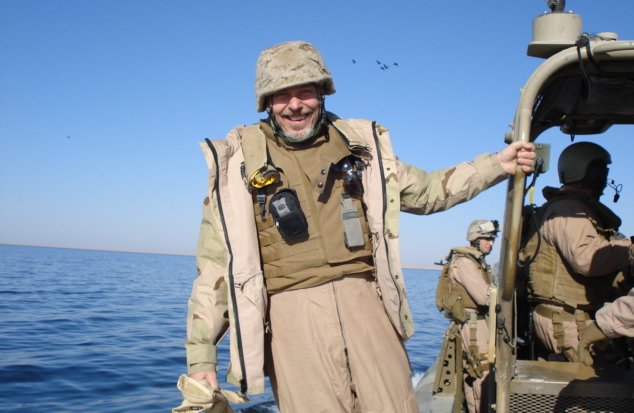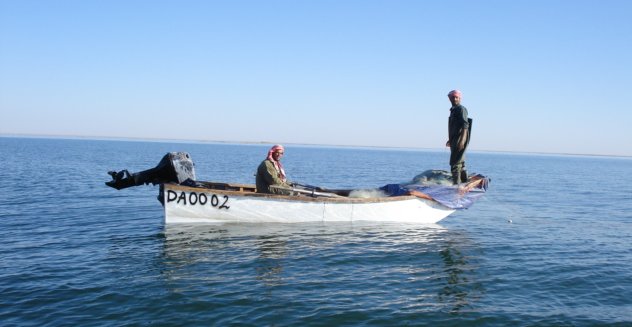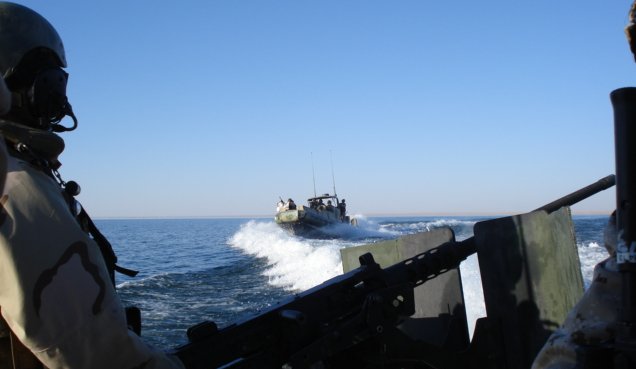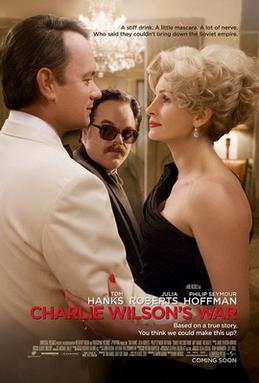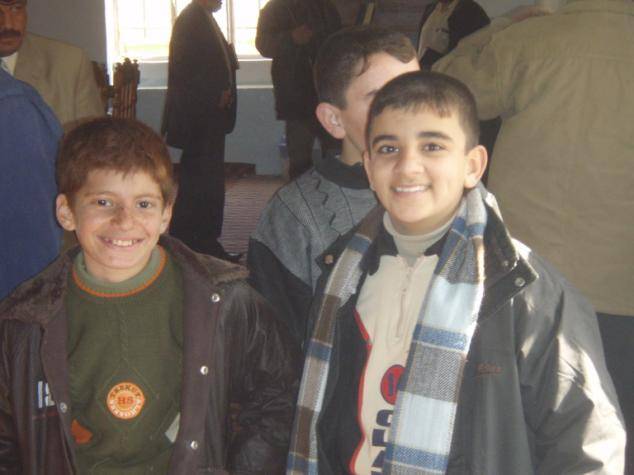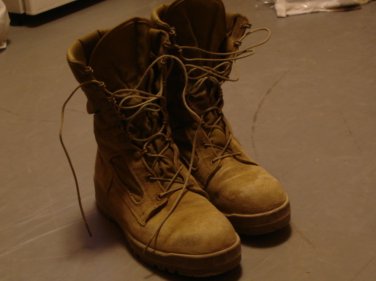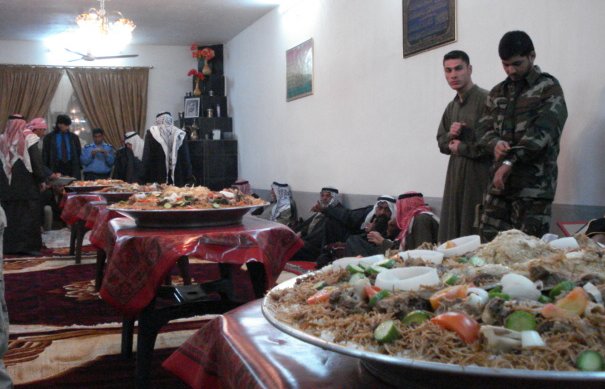
Above – we have enjoyed the sheik’s hospitality on many occasions, but I never really knew the host.
The old sheik spent twelve years as a prisoner in Iran. He lost most of his teeth and much of his hearing. Before it was home to Iraqi prisoners, the place where he was held had been used to house enemies of the Islamic Republic, but not for very long. The Sheik said that they would literally find pieces of people, at least the parts that didn’t rot quickly such as bones and hair. Sometimes, he said, they would find whole hands. The horrors he described were unimaginable. He remained a prisoner long after the war between Iraq and Iran was ostensibly over and finally got out in a prisoner exchange. His family thought he was dead after not hearing from him in twelve years and when he returned home nobody recognized him at first because he was so gaunt and worn down.
Back in Iraq, he assumed the duties of tribal sheik, since it was sort of the family business. During the insurgency, he worked with neighboring sheiks to root out the insurgents and bring peace and security back to this part of Iraq. He is still fighting a blood feud with AQI and says he still cannot sleep safely more than a couple of hours. He carries his AK with him when he goes to the bathroom, he says.
I did not know any of this about the man, although I had met him on several occasions at goat grabs at his home and in a variety of other venues. He seemed like a pleasant enough old man. That was the extent of my assessment. Of course, the broad outline of his story is not unique around here, but the time spent in Iranian captivity is unusual, i.e. unusual that he both spent the time in Iran and is still alive to tell about it. But most people around here have war stories or insurgent tales to tell and most local leaders still have a well-founded fear of retribution at the hands of the bad guys should the situation ever go bad again.
The old sheik loves the Marines, who he credits with saving his own life and those of his family. He fears a U.S. pullout and who can blame him. If we pull out too soon, we get to go home; he dies along with his family and a lot of other people he knows.
I talked to Chrissy today and she asked me if I had seen anybody killed. I have not. I was lucky to come just as the “most dangerous place in the world” was calming down to an almost tedious, if heavily armed, normality. This is good. I have no need nor do I want the kind of experience so many here have had. I have learned as much as necessary from their stories. I do not yearn for any of my own.
Americans wonder why Iraqis seem afraid to take initiative; Iraqis wonder why we fearlessly embrace risk. It comes from our respective experiences.
We Americans are a blessed people. We live in a land of opportunities where hardships don’t long prevail. Few of us have ever experienced any real deprivation and most of us have never personally experienced war. In Iraq, war has dragged on for almost thirty years and even during the brief interwar moments they were ruled by a capricious dictator who might decide to kill or displace thousands. Most Iraqis are under that age of thirty so few Iraqis are old enough to remember anything except war, hardship danger and deprivation. I can well understand why the people we meet are so resolute in their hope that this time the peace will hold; this time the stability will be enduring; this time prosperity will return. In spite my sojourn in a recognized war zone, I still count myself in that happy group that has not personally experienced war and it is my fervent hope to keep it that way.
When we asked the Sheik how he felt about Iran today, he approached the subject obliquely, explaining that it is the duty of good Muslims to make the pilgrimage to Mecca. Then he told us that if Mecca was in Iran, he would not go. He would prefer to go to hell rather than back to Iran. I guess as far as he is concerned it is hard to tell the difference between the two locations.

